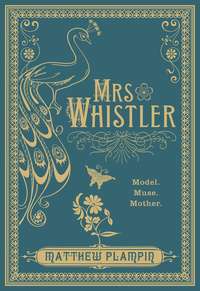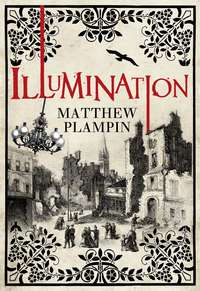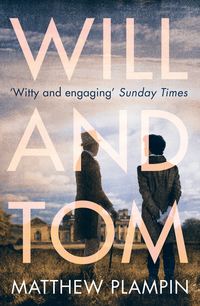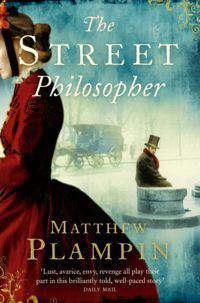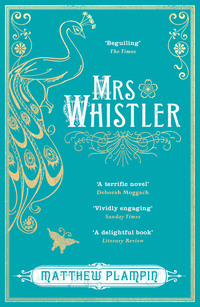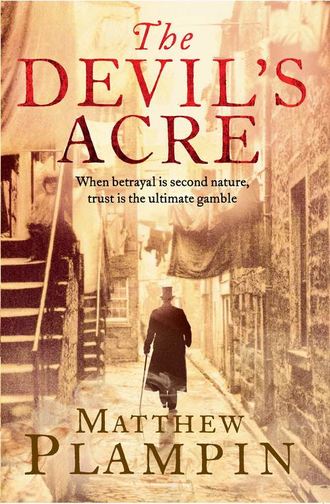
Полная версия
The Devil’s Acre
‘My point is made, I think,’ Colt pronounced. ‘If you honestly wish to equip Her Majesty’s troops with such an unsound weapon – troops who are battling savage Negroes to the death even as we speak – well, Paget my friend, that mistake is yours to make.’
The gun-maker poured the powder and bullet onto the desk, the tiny lead ball bouncing twice against the wood before disappearing onto the carpet. Laying the Adams revolver stock-first before the still-petrified Paget, he looked at Edward and then nodded towards the door. Their audience was over.
The Colt carriage was waiting for them on Pall Mall. Edward climbed inside and recoiled with an oath, almost losing his balance. A man was tucked in the far corner, dozing away peacefully with his hands folded over his chest; woken by Edward’s entrance, he stirred and let out a massive yawn. Completely unconcerned to have been so discovered, this intruder then heaved himself up, bending back an arm until he elicited a loud crack from one of his shoulder joints. In his mid-thirties, he had a long, horse-like face, a Roman nose and languid, greyish eyes. His clothes were fine but worn, and looked as if they had been slept in the night before. There was an air of gentlemanly entitlement about him, despite the clear signs of dissipation and financial hardship. He looked over at Edward and smiled sleepily.
‘You must be the new secretary,’ he said. A good deal of the polish had been scraped from his voice, but it was still plainly that of a well-born Englishman. ‘So pleased to make your acquaintance.’
Before Edward could demand to know who this character was and what the devil he was doing in the Colt carriage, the Colonel climbed in, having given the coachman his directions. ‘Alfie, you goddamn wastrel,’ he muttered to the man by way of greeting, sitting down opposite him, ‘I was wondering if you’d honour us with your company today.’ He took off his hat, setting it upon his knee. ‘Mr Lowry, this here’s Mr Richards, my London press agent. He was supposed to accompany us in to the Board of Ordnance this morning, but clearly did not deem it worth his precious time.’
Edward sat next to the Colonel. There was an old familiarity between his employer and Mr Richards. This was an unwelcome development.
‘My apologies, Samuel,’ said Richards with a shrug, settling on the carriage’s full cushions and refolding his hands. ‘My schedule simply would not permit it.’
Colt looked at him disbelievingly, pulled off one of his calfskin gloves and then laid his naked hand against his brow. ‘By Christ, my head,’ he grumbled. ‘I could surely use an eye-opener about now.’
Immediately, Richards produced a slim bottle from his frock-coat and tossed it across the carriage – no mean feat as they were moving by now, cutting back out into the traffic. Colt caught it with similar dexterity, gratefully tugging out the stopper and taking a long drink. This simple but well-practised exchange laid bare the nature of their relationship. Both were devoted to drink, and had no doubt shared a series of adventures about the city during the Colonel’s previous visits. Richards had thus managed to earn the Colonel’s indulgence, if not his trust.
‘You still have today’s pistol, I see.’
‘I was disinclined to make a gift of it on this occasion.’ Colt took another slug of liquor, sucking it through his teeth. ‘We saw Paget.’
Richards was aghast; he too clearly knew Lord Paget. ‘Was no one else available? What of old Tom Hastings?’
Colt shook his head, saying that it had been Paget or nothing. He gave a brief summary of the meeting, failing to mention his practical experiment with the Adams revolver but admitting freely that the door had been pretty much slammed in their faces.
‘Mr Lowry here fought his corner, though,’ he added. ‘A cousin soldiering in Africa, saying my guns would force the savage foe to surrender! Why, he came at it like a seasoned operator. Nothing of the greenhorn about our Mr Lowry! Potential there, Alfie, real potential – like I told you.’
Edward grinned, well pleased by the gun-maker’s praise. Colt plainly thought that he’d invented the cousin at the Cape to help win over Paget. This he most definitely hadn’t – Sergeant-Major Arthur Lowry was very real, although in truth the half-dozen letters Edward had received from him contained only a single passing reference to revolving pistols and gave no indication of Arthur’s opinion of their merits. He decided to keep all this to himself. Why risk spoiling the Colonel’s contentment?
Richards was looking at the new secretary again. There was laughter in his eyes, and a certain opposition too. He sees me just as I see him, Edward thought: as a potential competitor, an adversary within the Colt Company. Edward found that he was unworried by this. Let the dishevelled fool try to knock me down, he thought, and see where it gets him.
The press agent stretched out luxuriantly, placing his muddy boots on the seat beside Edward, just a touch too close to the edge of the secretary’s coat. ‘He certainly seems like a sound fellow – a good London lad.’ Richards paused to pick something from between his large, stained teeth. ‘Not actually a cockney, I hope?’
Edward met this with careful good humour. ‘No, sir, I hail from the village of Dulwich. My father was a schoolmaster there.’
Richards inclined his head, accepting the bottle back from Colt. ‘So you are seeking to rise above this rather humble background – to improve your lot under the guidance of the good Colonel. No doubt you expect that before too long you’ll be at the head of one of his factories.’ He took a lingering drink. ‘A Colt manager or somesuch.’
This was exactly the future that Edward had predicted for himself a couple of nights before, while out celebrating his appointment with his friends; he’d declared it nothing less than a blasted certainty, in fact, standing up on a tavern stool, liquor spilling from his raised glass and running down inside his sleeve. The secretary looked over at his employer. Colt was staring out of the window at the elegant townhouses of St James Square, oblivious to their exchange.
‘I have my professional goals, Mr Richards, of course,’ he replied, ‘but my only concern at present is to serve the Colonel’s interests to the best of my abilities.’ He cleared his throat. ‘I have long been a sincere admirer of both the Colonel’s inventions and the dedicated manner in which he conducts his business.’
One of Richards’s eyebrows rose by a caustic quarter-inch. ‘And how did you come to hear of the position? It was not widely advertised.’
‘Through an interested friend,’ Edward answered lightly, ‘that’s all. No mystery there, Mr Richards.’
The secretary thought of Saul Graff, the fellow who’d passed on the tip to him. Graff was like a voracious, information-seeking weed, his tendrils forever breaking out across fresh territories; God alone knew how he’d found out about this particular vacancy, but his timing had been faultless. He was owed a slap-up dinner at the very least – although he doubtlessly had his own reasons for wanting Edward Lowry placed with Colt.
‘An interested friend. How very deuced fortunate for you, Mr Lowry.’ Richards held the bottle up to the window, trying to ascertain how much spirit was left inside. ‘Sam tells me that you know a thing or two about the buying and selling of steel.’
‘I do, at a clerical level at any rate. I was in the City – the trading house of Carver & Weight’s, to be exact.’
This jerked the Colonel from his reverie. ‘Goddamn City men!’ he snapped. ‘Scoundrelly rogues, the lot of ‘em. I do believe that I’ve saved you from a truly ignominious existence there, Mr Lowry.’ He gave his secretary a grave, forbidding look. ‘A life lived among stocks and shares, generating money for its own sake alone – why, you’d better blow out your brains at once and manure some honest man’s ground with your carcass than hang your ambition on so low a peg. You get hold of some steel for me, boy, and we’ll damn well do something with it, not just sell it on for a few measly dollars of profit.’
It gladdened Edward to hear this. While at Carver & Weight’s he’d grown tired of the abstractions of the trading floor and had felt a growing hunger for what he came to think of as real business, where manufacturers innovated and improved, and communicated directly with their customers – where things were accomplished beyond speculation and self-enrichment. He was fast reaching the conclusion that Colonel Colt, with his masterful inventions and determination to win the custom not only of men but of entire nations, was the best employer he could have wished for.
The gun-maker cut himself a fresh wad of tobacco, effectively closing the topic of his secretary’s regrettable early life and moving them on to other matters. He’d resolved to send off a letter to Ned Dickerson, his patent lawyer in America, concerning Robert Adams, and began to dictate in an oddly direct style, delivering his words as if Dickerson was seated before him – telling him angrily that the ‘John Bull diddler’ would not make another cent from his goddamn forgeries, not if there was a single earthy thing that they could do about it. As he took all this down, Edward got the sense that the campaign against Adams had already been a long and bitter one, with no resolution in sight. Alfred Richards, meanwhile, devoted his attentions to what remained of the bottle.
Some minutes passed, Colt’s language becoming bafflingly technical as he detailed the precise matters of engineering that the lawyer was to direct his attention towards; then he stopped speaking mid-sentence. Edward looked up to discover that they were on Regent Street; a long row of shining, plate-glass shop windows offered disjointed reflections of their mustard-coloured vehicle as it swept around the majestic, stuccoed arc of the Quadrant. After only a few moments they turned again, heading off towards Savile Row. Colonel Colt was putting on his hat, preparing to disembark; and seconds later the carriage drew up before the frontage of one of London’s very smartest tailors.
‘New waistcoats,’ said Colt by way of explanation. ‘I’m out in society a good deal in the coming weeks, and thought it a prudent investment. You two gentlemen remain here. I shan’t be very long.’
The press agent’s grey eyes followed the Colonel all the way to the tailor’s counter. Edward watched him closely, certain that battle was about to begin. It was only when Colt’s arms were outstretched and a tape-measure was being run across his back that Richards finally spoke.
‘So how large exactly,’ he asked, ‘were the perimeters of the explosion?’
This was not what Edward had been expecting. He begged Richards’s pardon, pleading ignorance of any such blast.
The press agent responded with a small, whinnying laugh. ‘Why, Mr Lowry, I refer of course to the explosion of our beloved master when Paget first mentioned the name of Robert Adams!’
Somewhat patronisingly, Richards revealed that throughout the Colonel’s previous sojourn in London at the time of the Great Exhibition in 1851, when he had made an initial, more modest attempt to establish a European outpost, Clarence Paget had been an energetic partisan for the cause of their chief English rival. He had (they suspected) encouraged opposition to Colt at every level within the British Government, rigged various official tests and leaked negative reports on the American’s weapons to the press.
‘Since returning, the good Colonel has not so much as mentioned Adams revolvers before today; but after an unplanned meeting with Paget he’s sending vehement missives on the subject straight back to his legal mastiff in America. It don’t take a detective genius to piece it together, Mr Lowry.’
Edward put away the unfinished letter. ‘The subject was raised, certainly.’
‘And what, pray, was said?’
Realising that Richards would learn about the incident sooner or later anyway, Edward related what had happened up in Paget’s office as neutrally as he could manage.
The press secretary was heaving with mirth long before he’d finished. ‘Well, Mr Lowry,’ he wheezed at the tale’s conclusion, ‘that’s our Colonel, right there. His defence of his interests is quite unflagging. You’d better get used to such forcible tactics, old chum, if you are to stand at his side.’ Richards wiped his eyes; something in his manner told Edward that a card was about to be played. ‘The Colt family has an impulsive streak in it so broad that it borders on madness. I’m sure you’ll know to what I am alluding.’
And there it was, a veritable classic: the dark secret, casually touched upon to unnerve the callow recruit, to fill him with doubt and prompt a confused re-evaluation of his position. Edward found that he was smiling at this unsubtle piece of manipulation. ‘Mr Richards, I assure you that I do not.’
Richards feigned surprise. ‘You mean that you haven’t heard of John Colt, the axe-murderer of New York?’
The smile slipped a little. ‘I – I beg your pardon?’
Richards dug a bent cigar end out of a coat pocket and made a great show of getting it alight. ‘Killed a fellow with a hatchet back in forty-two, in Manhattanville,’ he said as he struggled with a match. ‘There was a disagreement over money, apparently. They were in business together, you understand – and as you’ve seen already, a Colt will really go the distance when business is involved. Victim’s name was Adams, coincidentally enough.’
‘Good Lord.’
‘And that’s not all. Dearest brother John went on to chop the body up, if you can imagine such a thing. The mad blighter then stuffed the parts into a packing-case and sent it by steamer to New Orleans.’ Richards sucked on the cigar, quickly filling the carriage with smoke. ‘But the case started to pong halfway down the Mississippi. It was an unusually hot summer, I’m told, and the killer had scrimped somewhat on the salt. The gruesome contents of the case were duly discovered, and traced back to John within the week.’ Richards stopped his tale here, deliberately savouring his bent cigar.
He has me, Edward thought with mild aggravation; I must ask. It seems that I might have underestimated the Colonel’s press agent. ‘What happened to him? Did he hang?’
Drawing in his long legs, Richards grinned around his cigar in wolfish victory. ‘Ah, well, that’s where it gets really good. On the eve of his execution, as they were putting up the gallows in the prison yard, he stabbed himself through the heart. It is said that our own dear Colonel, eager to spare the family the shame of a public hanging – and thus protect his own emergent business interests – both brought him the knife and talked him into this last desperate act.’ He took the cigar from his lips. ‘These Colts are a ruthless lot, Mr Lowry – as merciless with each other as they are with the world at large.’
Down in the street, a door opened; Richards looked towards the tailor’s shop and then quickly opened the window on the carriage’s other side, tossing out his cigar. Colonel Colt was coming back.
The yard of the Colt factory was a narrow, cobbled valley between two block-like buildings. A week earlier, during Edward’s first visit, it had been almost deserted; but now it positively thronged with people, as many as three hundred of them by his estimation, replacing the empty silence with an incessant, excited chatter. They stood in a ragged line that stretched along the flank of the right-hand building and ran all the way back to the main gate on Ponsonby Street. Of both sexes and all ages, this multitude formed a great specimen box of the London poor, ranging from well-washed working folk keen for honest labour, through the dry drunkard and the hard-up gambler, to various incarnations of beggary. Edward realised that Colt’s London machine operatives were to be drawn from this unpromising pool. Even the best among them seemed a long distance from the skilled artisans traditionally charged with the manufacture of firearms. This, he saw, was the principal secret of the Colonel’s revolutionary method of production: his patented pistol-making machines needed only the most ignorant and inexpensive of workers to run them.
The Colt carriage halted next to the stone water trough that stood in the centre of the yard, the Colonel jumping out in what the secretary was coming to realise was his customary fashion. He followed as quickly as he was able; Richards, who had somehow contrived to fall asleep once more during the twenty-minute journey from Savile Row, showed no sign of waking.
Down on the cobblestones, Edward took in the factory for a second time. It was an unlovely place, to be sure, given over completely to the efficient fulfilment of its function. The two buildings – the manufactory itself on the right, where the engine and the machines were housed, and the as-yet vacant warehouse opposite – were entirely undecorated, the walls blank brick, the windows small and grimy, the many chimneys nothing but crude stacks. Yet the enterprise had a sense of scale about it, of sheer purpose, that was unmatched by the other factories that clustered around the reeking thoroughfare of the Thames. Turning to face the gates, Edward looked across the river to the collection of potteries and breweries scattered along the southern bank. These squat brown structures seemed little better than shacks, at once ancient and impermanent, fashioned from the muck of the shore. The premises of the Colt Company, by comparison, seemed a site for truly modern industry – the kernel of a mighty endeavour.
Beside him, the two chestnut mares who were pulling the Colt carriage snorted impatiently, eager to be unharnessed so that they could drink at the trough. Edward noticed that a dozen or so of the American staff Colt had brought with him were standing by the large sliding door that opened onto the forge, surveying the line of potential recruits. Dressed in corduroys, flannel waistcoats and squat, round-topped hats, and liberally smeared with engine grease, they appeared less than impressed by the noisy English crowd hoping to join their revolver factory. The Colonel was going over to them, walking rapidly as if keen for the company of his countrymen after a half-day spent with Edward and Alfred Richards.
A whisper of recognition went up from the queue of applicants as Colonel Colt strode over the yard. All rowdy conversation stopped; every head turned towards the famous Yankee gun-maker. Hats were doffed and curtseys dropped, as if in the presence of a great lord or clergyman. A handful of the bravest bade the Colonel a very humble good afternoon.
Colt ignored them. Reaching the forge door, he beckoned to a huge brute of a man, larger even than he was, with the blunted, leathery face of a prize-fighter; Edward recognised him as Gage Stickney, the factory foreman. A good-natured exchange began, the Colonel asking for details of the morning’s enrolment. Soon all the Americans were shaking with hard, masculine laughter. Looking on, Edward became rather conscious of the smart Englishman’s top hat and frock-coat that set him apart from both the pack of chortling Yankees and the shuffling mass of aspirant Colt operatives. The pistol case was still under his arm. He wondered what on earth he was to do with it.
There was a colourful curse behind him, the ‘r’ of ‘bugger’ slightly slurred; Richards, in descending from the carriage, had caught a button on the door handle, one side of his coat lifting up from his gangling frame like a fawn-coloured bat wing. In a doomed attempt to pull it free, the press agent ripped the button away completely. He grunted with satisfaction, as if this had been his aim.
‘Don’t know what they’re looking so deuced pleased about,’ he declared, nodding towards the Americans. ‘The last I heard our engine was barely strong enough to animate a sideshow automaton, let alone a sufficient quantity of machinery to occupy this blasted rabble.’
Edward considered the press agent for a moment, thinking with some distaste that this wretched fellow was actually the closest thing he had to an ally at the Colt Company. ‘I’m sure that the Colonel is not given to displays of undue confidence, Mr Richards.’
Richards showed no sign of having heard him. ‘You see that Yankee over there,’ he murmured archly, angling himself away from the Americans, ‘standing a little apart from the rest?’
It was immediately obvious to whom he was referring. The man was smaller and leaner than the others, and the oldest of the group by a clear decade, his skin scored with scar-like lines that bisected his hollow cheeks and spanned his brow in tight, straight rows. He was dressed in a dark blue cap and tunic, creating a distinctly military effect that was augmented by the high shine of his boots and the precise cut of his greying beard. While his companions laughed with the Colonel he continued to regard the ragged assembly of applicants with the fierce focus of a terrier.
‘Mr Noone,’ Edward replied. ‘The factory’s watchman, I believe.’
‘And a chap with the very blackest of reputations. I’ve heard it said that the Colonel risked losing several of his most trusted people back in Connecticut when he took the villain on – threatened to walk right out, they did, so low is the regard in which our Mr Noone is held among certain of his countrymen. But the Colonel wanted him – said he was right for the post, a fellow who could be counted on to defend one’s interests at all costs.’ Richards paused significantly. ‘At all costs, Mr Lowry.’
Edward fixed the press agent with a probing look. The scoundrel wants me to beg for more information again, he thought, as I did with the Colonel’s axe-murdering brother. Well, I shan’t; I won’t hear any more of his plaguing stories. He stated that he was going to take the pistol case back up to the factory office, walking past Richards towards the tall sliding door that served as the main entrance to the factory block. Before he’d taken more than a couple more steps, however, there was a flurry of rough shouts from inside the building. Three men, Scots from the sound of it, marched out to the centre of the yard, bawling curses against Colonel Colt and his Yankee contraptions. All three were drunk, and from what they were yelling had just been turned away by those enlisting the factory’s personnel. Seconds later Mr Noone, the watchman, was upon them, backed by a couple of other Americans. They collared the malcontents and hurried them over to Ponsonby Street, administering hard kicks to their behinds as they reached the gate.
This spectacle was greeted with laughter from the line; as more people turned to take it in, Edward noticed a lively-looking young woman in the plain yet respectable clothing of a domestic servant away from her place of employment, waiting in the queue with several others in similar dress. She was smiling wickedly at a remark made by one of her companions – a smile that made him smile as well to behold it. In the middle of her left cheek were two small but distinctive marks, side by side and oddly even. As she turned back towards the factory door, her smile fading, their eyes met. For a single clear moment they both stood in place, contemplating each other.
Then Colonel Colt called out his name, clapping his hands together as he headed back to the carriage. Edward smoothed down a twisted lapel and went over to join him.
2
Sam took the steps of the American embassy three at a time. Ignoring the grand brass knocker, he hammered on the door with his fist. It opened just an inch or two, as if in caution, so he gave it a hearty push, causing it to connect violently with the forehead of the unfortunate footman on the other side and send him staggering back into a floral arrangement.
‘Ice, right now,’ Sam instructed as he strode past, flicking a shilling at his victim. ‘That’ll see you right.’
The servants were coming at him, taking little bows, their eyebrows raised all the way up in that queer English manner, but he would have none of it. Deftly, he weaved around them and loped up the main staircase, arriving in an emerald green hall with the doors to the main reception room directly ahead. It was an apartment designed to make a man not born to splendour feel small and worthless: columns, chandeliers, fancy pictures, gold leaf by the yard. Nonplussed, thinking that the effect was rather aristocratic and decidedly un-American, Sam turned his attention to the other guests. His mood improved immediately. The crowd was a grey one, and sombre-looking. This, he knew well, tended to denote the presence of some serious political authority. He also registered a handful of smart naval coats and crimson jackets, adorned with medals and sashes of various hues. Generals, admirals and politicians, rounded up in one place: prime hunting ground for a sharp gun-maker.


